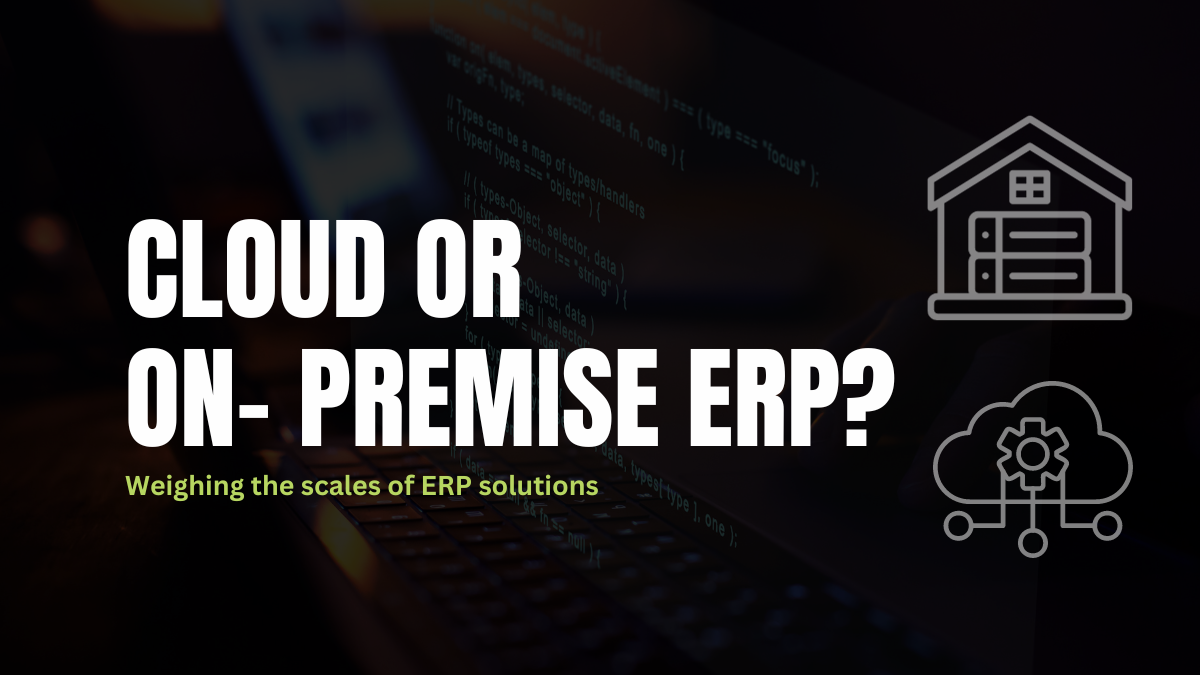In our blog, we’ll unravel the mystique behind cloud and on-premise ERP software. Like any other software, they both have some pros and cons.
Let’s dive into the pros and cons.
Cloud ERP – Pros
- Reliable and high-quality services
- Quick to implement
- Great for small and medium businesses with predictable cash flow and minimal IT infrastructure
- Lower cost
- Decreased operating costs
- High scalability: easily adjust to changes in demand or growth.
- High accessibility
- Provide consistent performance, user experience, and data synchronization across different devices.
- Higher reliability
- Less maintenance
- Fewer compliance challenges
Cloud ERP- Cons
- There is less room for personalization.
- End up spending more money over the system’s lifespan.
- Rely on the vendor’s security measures, which may vary in quality and compliance standards.
- More exposure to external threats as they are connected through the internet.
- Offer fewer customization options.
- More vendor dependence
Explore the wonders of cloud ERP by clicking on the offline online cloud synchronization module!
On-Premise ERP- Pros
- Suitable for larger companies with direct hardware control
- Great for specialized manufacturers and unique production processes
- Offer more control over data security.
- Less exposure to external threats
- Offer more customization options.
- Less vendor dependence
- Less bargaining power with their vendors
- Complete ownership
On-Premise ERP- Cons
- Can be costly in the long run.
- Limited scalability, depending on the company’s own hardware and software resource capacity
- Limited accessibility
- Lower reliability
- More maintenance: managing hardware, software, networks, security, and support issues
- Require periodic upgrades.
- More compliance challenges
When choosing the best ERP for your company, Quarto ERP will provide you with the most options. It covers all the necessary parts of the business and can customize the software according to your business requirements.
See how Quarto ERPs Cloud and On-Premise system can help with your Business!
Cloud ERP
- Businesses can add or remove users and functionality as needed without having to worry about investing in new hardware and software.
- Businesses can access their data and applications from anywhere in the world, and they can easily collaborate with employees, partners, and customers.
- A retail company can use Quarto Cloud ERP to track inventory levels and sales data in real time. This can help the company’s stockouts and make better decisions about pricing and promotions.
- A manufacturing company can use cloud ERP to track production schedules and quality control data.
- A service company can use Quarto Cloud ERP to track customer interactions and project progress. This can help the company improve customer satisfaction and deliver projects on time and within budget.
On-Premise ERP
- Businesses that operate in areas with unreliable internet access. An on-premise ERP system would allow the mine to manage its operations, including inventory tracking, financial transactions, and employee payroll, even during periods of network downtime.
- Businesses with complex business processes, such as manufacturing and distribution, can benefit from the customization and flexibility that Quarto’s on-premise ERP offers.
- Businesses that have experienced data breaches in the past may be more comfortable storing their data in Quarto’s on-premise ERP.
- In finance, processing transactions and managing data securely without relying on external servers.
- Controlling production processes and ensuring continuous operations during network disruptions.
- Integrate with other business applications, streamlining communication and collaboration between branches and headquarters. This integration facilitates data sharing and ensures that all branches are operating from the same set of information.
In conclusion, choosing between Cloud vs On-Premise ERP software depends on your business needs. Cloud solutions offer flexibility, scalability, and accessibility, making them suitable for small businesses with dynamic requirements and a focus on cost-effectiveness. On the other hand, on-premise ERP provides greater control and customization for businesses with strict security and compliance needs.
Consider factors like budget, scalability, and security to make the right choice for your organization’s success.





